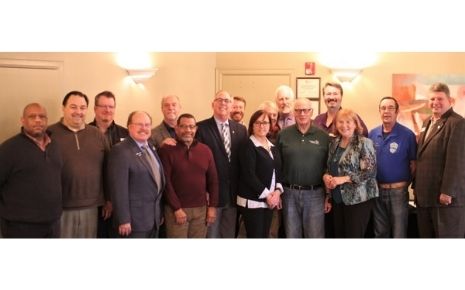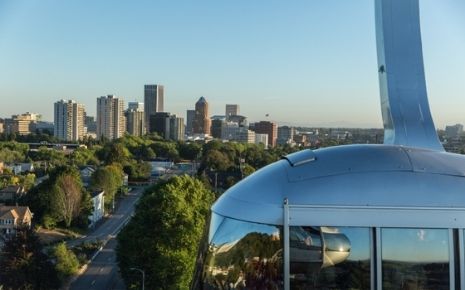Business Tribune Column: Charting the Path to Regional Economic Recovery

17 Apr 2020
GPI in the News
This column appeared in the Business Tribune. Matt Miller, Greater Portland Inc's interim president and CEO, writes a monthly column for the local newspaper.
By now, our region is settling into a sort of new normal in the midst of this pandemic. For some, this means working from home. For many, this means heading into essential jobs every day to keep critical functions operating. For the tens of thousands recently laid off, this means applying for unemployment benefits. For many employers, it means applying for any and all available grants, loans and other resources.
It’s been nearly a month since Governors Kate Brown and Jay Inslee instituted separate stay-at-home orders on March 23. These and other orders to close schools, shut down non-essential businesses, ban large gatherings and maintain distance from others have been painful. But these orders are necessary in limiting the spread of COVID-19, and there is evidence that these measures are working.
The pandemic and mandated closures have quickly and dramatically impacted our region’s economy – a supply and demand shock that could last months or years and is hitting all sectors of the economy.
Unemployment rates could grow as high as 20 or 30 percent, the likes of which our region hasn’t experienced since the Great Depression. When the public health crisis is resolved, the hard work of rebuilding our regional economy will need to happen as fast as possible. This process should happen in three phases.
Phase one is the immediate response to our businesses and community partners during the current shut-down period. The abrupt impacts have hit restaurants, bars, retailers and other local small businesses. Many Asian and Pacific Islander businesses were impacted first, due to racially motivated stigma.
Several communities throughout Greater Portland have established relief funds to disseminate grants and loans to provide immediate support to small business owners. Many organizations are working to provide assistance in a number of ways – helping companies navigate new federal programs, providing technical assistance, helping companies understand government rules to protect the public interest, and more.
At Greater Portland Inc, we are working on stabilization efforts from multiple angles:
- We are supporting economic development efforts by streamlining communications and information on programs and support efforts through our COVID-19 business resources page on our website.
- GPI is co-convening the region’s Economic Response Team with Gov. Kate Brown’s Metro Regional Solutions team and other partners. These weekly meetings allow local practitioners to make recommendations to state and federal policymakers based on needs at the local level, and they enable state and federal leaders to share details and timelines for new available resources.
- We are convening economic development practitioners around the region in a weekly forum to share approaches and identify best practices. GPI is exploring state, federal, and philanthropic financial resources that could be deployed locally to support community efforts. GPI also continues to work with companies considering opening operations here and adding jobs.
The immediate response is a critical first step, but we will not be able to reopen and recover until there is substantial improvement in the public health crisis. Until then, economic developers can continue to identify sources of liquidity and provide technical assistance to businesses.
Phase two will revolve around developing plans for reopening the economy. In our region, resources at the local and state levels are likely to be limited. Therefore, we need to create a regional recovery team where we can leverage the limited resources that remain.
Phase three, and key to our region’s long-term recovery, is incorporating resiliency planning into our strategies. GPI is the federally-designated economic development district for the bi-state region, and is charged with carrying out a federally approved, five-year plan, called the Comprehensive Economic Development Strategy (CEDS). Doing so presents additional funding opportunities for the region.
Prior to the crisis, we began the process of developing this strategy by establishing a project partnership with Metro, convening partners and securing a consultant team. We intended to incorporate resiliency to prepare for future disruptions, but will now shift our focus to be responsive to the COVID-19 pandemic and its economic impacts on our region.
We have the opportunity to leverage this planning effort to create a recovery strategy for the region that will lift us out of this recession and leave us better prepared for the next disaster.
More Topics




